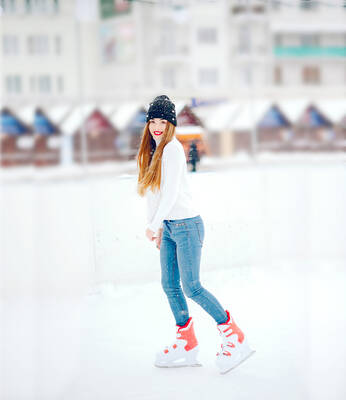見見老鼠凱薩琳和大象馬克。凱薩琳非常勇敢又喜歡冒險,但馬克的個性十分害羞,對許多事情都感到害怕。不過,朋友都喜歡黏在一塊兒,所以凱薩琳走到哪兒,馬克就會跟到哪兒。有時候,他們也會碰上非常棘手的情況...
Water slide dash 驚險的水上溜滑梯
On a sunny day at the water park, Mark and Kathleen went to the top of a water slide.
“Let's have a race,” Kathleen said. “One, two, three, go!”
Mark easily beat Kathleen to the bottom of the slide. When Mark landed in the pool, water splashed all over the lifeguards.
“That was great fun,” Mark said.
“I suppose,” Kathleen said. “Let's try again.”
Mark won again, splashing the lifeguards even more.
“Dude, that's a big splash,” one of the lifeguards said. “Let's go dry off.”
The lifeguards went to the locker room. Mark looked at Kathleen, who had a sour look on her face.
“Let's go race one more time,” Mark said. “We'll try a different slide, and I'll give you a head start.”
Mark and Kathleen went all the way to the top of the stairs.
“You go first,” Mark said. “I'll count to three then go.”
Kathleen raced down the slide and let out a gasp as she passed through a tunnel.
“Mark! Don't come down this slide!”
But it was too late. Kathleen looked back and saw Mark's trunk coming out the end of the tunnel. The rest of him was nowhere to be seen …
風和日麗的一天,馬克和凱薩琳在水上樂園,跑到了水上溜滑梯的頂端。
「我們來比賽,」凱薩琳說︰「一、二、三,出發!」
馬克輕而易舉就擊敗凱薩琳,溜到滑梯底端。馬克掉進池裡時,水花四濺,好幾位救生員都被濺濕了。
馬克說︰「好好玩喔。」
「大概吧,」凱薩琳說︰「我們再試一次吧!」
馬克又贏了,那些救生員也被濺得更濕了。
「老兄,水花也濺得太高了吧,」其中一名救生員說︰「我們得去擦乾了。」
那群救生員走向擺放置物櫃的休息室。馬克看到凱薩琳的臉色很臭。
「我們再比一次吧,」馬克說︰「這次來試試另一個滑梯,我先讓你開始。」
馬克和凱薩琳走到了另一個溜滑梯的頂端。
「你先出發吧,」馬克說︰「我數到三再溜。」
凱薩琳迅速溜下了滑梯,她通過隧道時,呼了一口氣。
「馬克!不要滑下來。」
可惜為時已晚。凱薩琳回頭一望,只看到馬克的象鼻伸出了隧道口,卻看不到身體的其他部分‥‥‥
(翻譯:賴美君)

★ Bilingual Story is a fictionalized account. 雙語故事部分內容純屬虛構。 “Any New Year’s resolutions?” he asked. Lena put her coffee down. “Yeah,” she said. “To get in shape.... round is a shape, right?” Mark chuckled. “I support this. Fully achievable. Low risk.” “Thanks,” she smiled and lovingly rubbed her round belly. “I like a resolution I can’t fail.” “Funny thing is, I was thinking about getting round too.” Lena nodded her head in approval, “You could put some meat on those skinny bones of yours.” Mark shook his head, “Not that kind of round. Wheel-of-Life round.” She raised an eyebrow.

Skating is a popular recreational and competitive activity that involves sliding over surfaces using specially designed footwear. Its origins date back over 1,000 years to Northern Europe, where people first strapped animal bones to their feet to move across frozen lakes and rivers. In the 17th century, the Dutch transformed skating into a leisure activity. They also replaced bone blades with metal, leading to the creation of modern ice skates. Today, ice skating is enjoyed as a global sport and an exciting pastime by people of all ages. Figure skating is one of the best-known and most graceful forms of skating.

對話 Dialogue 清清:最近天氣越來越冷,感覺很容易感冒,要不要一起去吃薑母鴨或是羊肉爐? Qīngqing: Zuìjìn tiānqì yuèláiyuè lěng, gǎnjué hěn róngyì gǎnmào, yào bú yào yìqǐ qù chī jiāngmǔyā huòshì yángròulú? 華華:最近我覺得有點累,想吃薑母鴨,可是又怕一下子吃太補會上火。 Huáhua: Zuìjìn wǒ juéde yǒudiǎn lèi, xiǎng chī jiāngmǔyā, kěshì yòu pà yíxiàzi chī tài bǔ huì shànghuǒ. 清清:那我們去喝香菇雞湯吧,不太容易上火,喝了也會很暖和。 Qīngqing: Nà wǒmen qù hē xiānggū jītāng ba, bú tài róngyì shànghuǒ, hē le yě huì hěn nuǎnhuo. 華華:聽起來不錯!你們家平常冬天都吃什麼進補? Huáhua: Tīng qǐlái búcuò! Nǐmen jiā píngcháng dōngtiān dōu chī shénme jìnbǔ? 清清:我家都煮麻油雞,吃完整個人手腳都會熱起來。我也很久沒喝香菇雞湯了,正好可以去打打牙祭。 Qīngqing: Wǒ jiā dōu zhǔ máyóujī, chī wán zhěnggè rén shǒujiǎo dōu huì rè qǐlái. Wǒ yě hěn jiǔ méi hē xiānggū jītāng le, zhènghǎo kěyǐ qù dǎ dǎ yájì. 華華:可是我最近在減肥,會不會吃得太補,肉又長回來了? Huáhua: Kěshì wǒ zuìjìn zài jiǎnféi, huì bú

A: South Korea’s Golden Disc Awards ceremony is taking place at the Taipei Dome on Saturday. Eighteen acts are taking to the stage, including Blackpink’s Jennie. B: The hottest boy group CORTIS is also performing. I can’t wait to see James, the Taiwanese member of the band, perform. A: Who else are playing at the K-pop show? B: This year’s lineup is stacked, including: Allday Project, ARrC, Ateez, Boynextdoor, Close Your Eyes, Enhypen, IVE, Izna, KiiiKiii, Le Sserafim, Monsta X, NCT Wish, Stray Kids, TWS, Zerobaseone and Zozazz. A: SKZ, Enhypen and Ateez dominated Billboard’s 2025 Year-End World